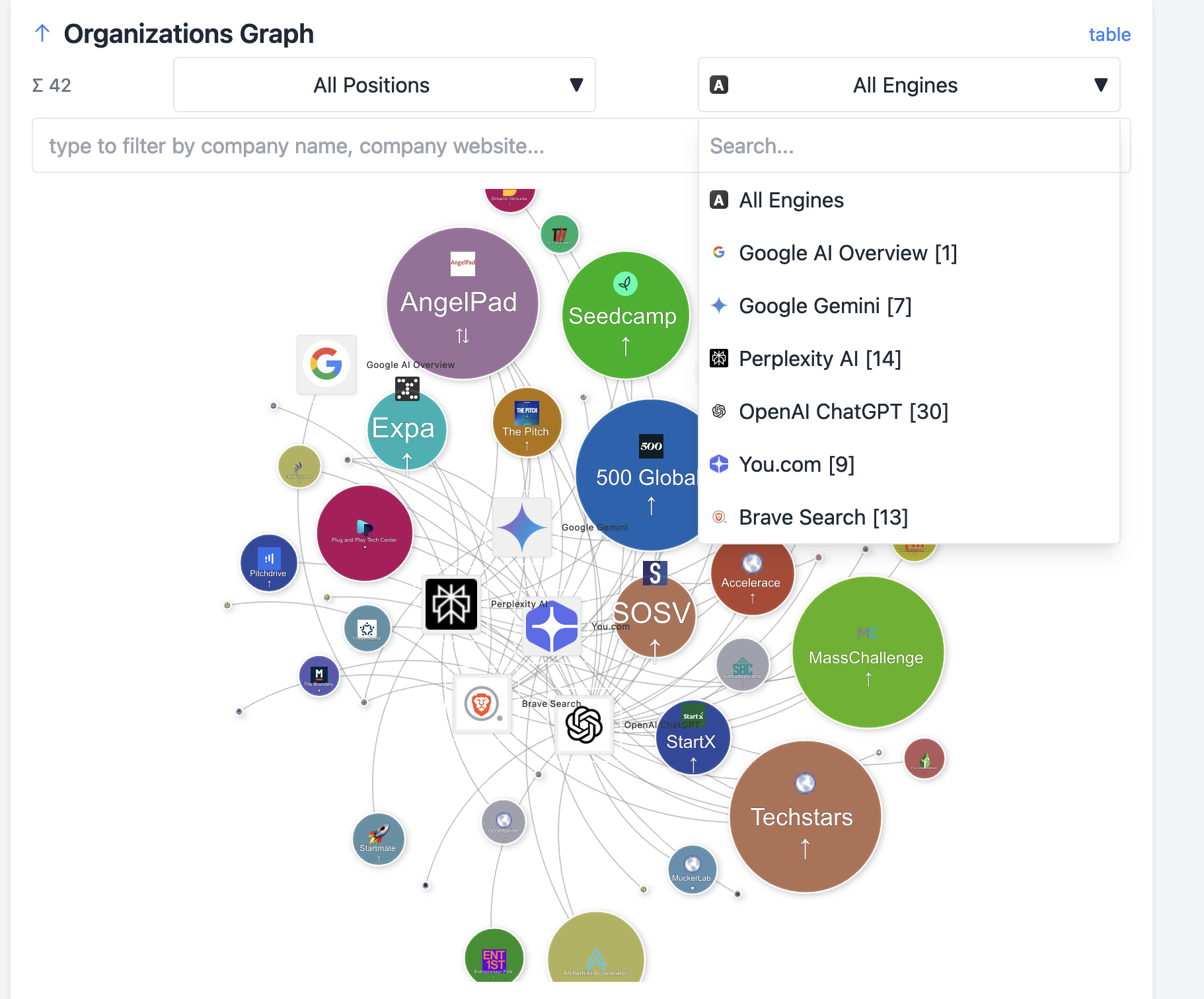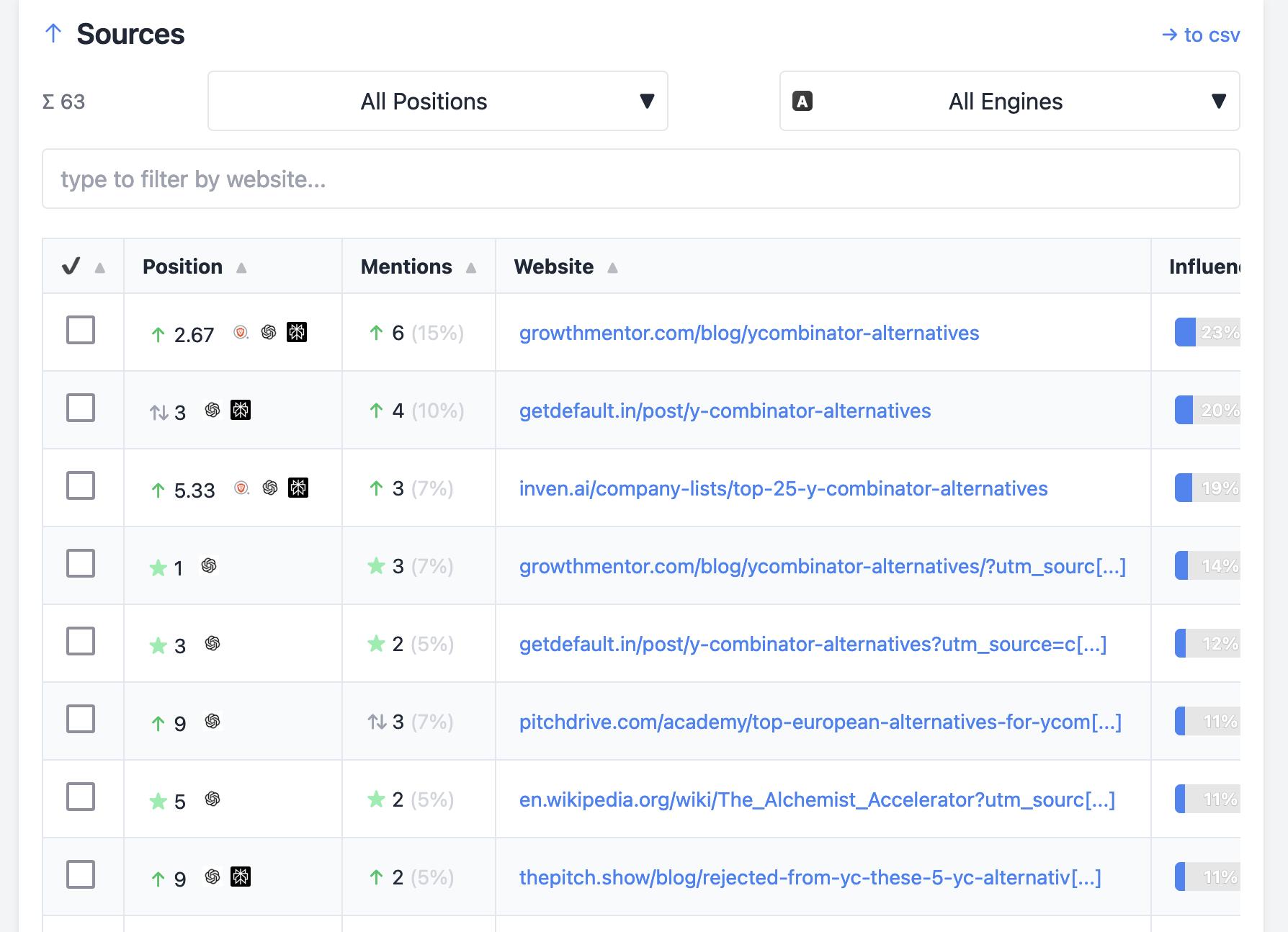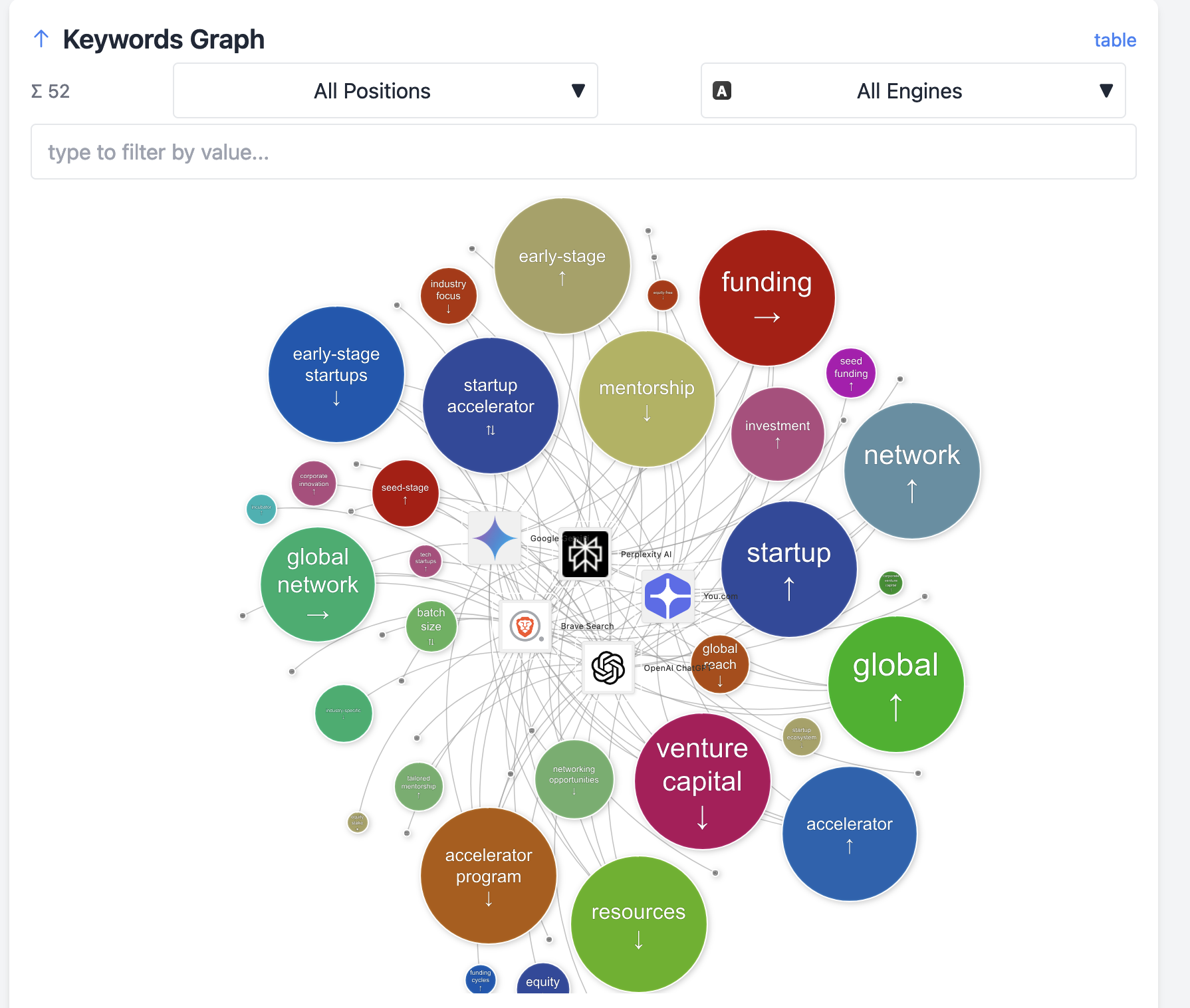How AI Engines Analyze Y Combinator Alternatives
Table of Contents

So I was asking all these AI search engines about Y Combinator alternatives (cuz not everyone gets into YC right?) and wow - the results were kinda fascinating! We put together this AI Search Watch report showing how different AI systems rank and compare other accelerator programs. It's pretty cool to see how AI "thinks" about these programs compared to traditional rankings.
Oh btw if you're a startup founder struggling with marketing (who isn't?), you should definitely check out our analysis of How AI Engines Analyze Current Marketing Strategies - super useful stuff there!
Key Findings
- Program Analysis: So SearchGPT was actually the most thorough here - it gave us like 20 different accelerators with all their specialties. Techstars and AngelPad came out on top with around 30% influence each. Pretty impressive tbh.
- Source Distribution: OK this was interesting - the AIs pulled from 63 different sources but get this - 66% were just blogs and personal websites! Only 10% came from actual academic research. Makes you wonder about the quality right?
- Key Terms: Not super surprising but "startup" was mentioned everywhere (like 20% of all content). "Mentorship" was also huge at 10% - seems like that's what everyone values most in these programs.
Deep Look deep at the Data

The sentiment analysis shows consistently positive outlook (70-80%) across AI engines, with most emphasizing the growing diversity and specialization of accelerator programs worldwide.

Geographic analysis reveals a global distribution of alternatives, with notable concentrations in San Francisco (24%), New York City (18%), and Paris (18%), indicating the worldwide spread of startup ecosystem support.
For startup founders looking to leverage AI technologies in their ventures, see our report on How Businesses Can Benefit From AI Technologies Now.
Frequently Asked Questions
1. Why analyze alternatives to Y Combinator using AI?
AI can aggregate huge amounts of data. It pulls from multiple sources. This provides founders with unique ideas. It gives them a broader perspective. This helps them find the best accelerator for their startup's goals.
2. Which AI engine provided the most complete list of alternatives?
SearchGPT stood out in the analysis. It provided details on around 20 accelerators. It included their specialties. Techstars and AngelPad had high influence. They were prominent in the AI's analysis.
3. How accurate are AI-generated ideas about accelerator programs?
The accuracy depends on data source quality. It depends on data source diversity. In this report, 66% of sources were blogs. They were personal sites. Only 10% came from academic research. This can influence reliability.
4. Why consider Techstars or AngelPad as alternatives?
Both programs offer strong mentorship networks. They have sizable alumni communities. According to AI analysis, each had about 30% influence. This is based on overall reputation. It's based on resource accessibility.
5. What is the importance of mentorship in accelerator programs?
Mentorship was mentioned in 10% of all references. Founders value direct guidance. They value network opportunities. These help shape early-stage startup success.
6. Are these AI ideas globally representative?
Yes. The geographic analysis showed global distribution. Top concentrations were in San Francisco at 24%. New York City had 18%. Paris had 18%. This shows widespread availability of quality accelerator programs.
7. How do AI engines perform sentiment analysis on accelerators?
They scan online mentions. They look at reviews. They examine articles. They apply language processing models. This gauges overall positivity or negativity. In this study, sentiment was 70-80% positive.
8. Does AI only rely on startup blogs and personal websites?
Not exclusively. A significant portion of data came from such sources. This was 66% of the data. Influential blog posts often shape AI's view. They shape AI's rankings of accelerator programs.
9. What role does academic research play in evaluating these alternatives?
Academic research made up 10% of sources. It can offer rigorous ideas. The limited sample shows that practical knowledge drives AI recommendations. This knowledge comes from experience.
10. Which factors should founders consider when choosing an accelerator?
Beyond reputation, consider mentorship structure. Look at geographic focus. Evaluate funding opportunities. Check the alumni network. Review the specific expertise offered. AI analyses often highlight these criteria.
11. Why does the article mention the importance of specialized programs?
According to AI results, specialized accelerators offer targeted resources. They provide specific connections. Startups with niche products benefit most. This is true for industry-focused startups too.
12. Where can I find more AI-based reports on startup accelerators?
You can subscribe to the newsletter. You can check the look at reports link. Additional resources are shared in free AI-based research updates.
Keywords
Continue Reading:
Sentiment Analysis of Team Feedback
How AI helps analyze employee feedback and provide actionable ideas
Handling Legal Threats or Demanding Customers Without a Legal Team
Small businesses sometimes encounter customers who say things like I will sue or I will...
How AI Tools Improve Compliance and Reporting for Small Businesses
How AI Tools Improve Compliance and Reporting for Small Businesses
